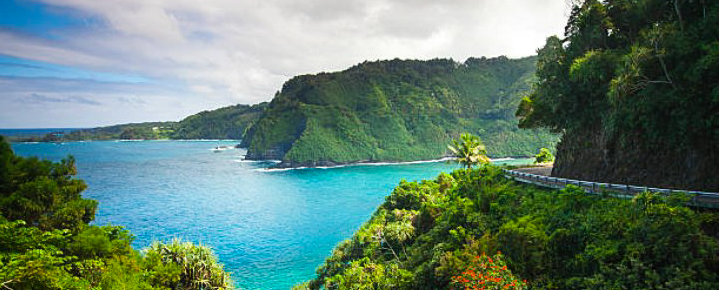It is a foregone conclusion that the next Hawaii governor will be current Lt. Gov. Josh Green. He previously proffered the idea of a $50 visitor fee on arrival. That’s right, a $50 “green fee” by Green. Now his plan has been confirmed, and it goes like this.
“As governor, I will propose a $50 impact fee for visitors.” (Josh Green)
According to Green’s website, that will “generate up to $350 million in annual revenue to invest in protecting our environment, addressing climate change and building affordable housing, while reducing the total number of tourists.”
Visitors are in an uproar.
We’ve already had a huge number of comments from visitors upset about both the idea and impact of yet one more fee in Hawaii.
The Hawaii universal tourist fee details.
This gets confusing even for us. Earlier this summer, Hawaii’s semi-defunct marketing arm, HVCB, said the universal visitor fee is “dead on arrival,” per the state legislature. Yet the individual about to become governor says the fee is clearly on.
A Hawaii tourist fee has been thrown around for over fifty years.
As long ago as 1970, the state legislature first discussed a tax system to offset visitors’ impact with some fee. HVCB would have been responsible for implementing the fee Green has proposed had their contract not been pulled and likely handed over to the Council for Native Hawaiian Advancement (CNHA).
After HVCB announced that the universal Hawaii visitor fee idea was dead, gubernatorial certain Lt. Gov. Josh Green said in an interview that he would like to implement what he then called a “climate impact fee” of $50 per person. It then became formalized at some point on his political website.
That fee would apply to all Hawaii visitors on arrival in the state. Green first said such a fee would raise an additional $500+ million annually but has since downgraded that amount. He said the fee is aligned with estimates of how much money is needed to help reduce environmental issues resulting from tourism.
Where will the $50 tourist fee go exactly?
One of the things that most rankles Hawaii residents and visitors alike, and they can agree on, is the state seems to have a complete lack of accountability for the money it takes in, whether earmarked or not. And that has been the case for as long as we can remember. Heck, we can’t even get park and beach restrooms and roads repaired for a seeming lack of money. And how many of you have asked where the 18% tax you already pay on accommodations is going?
Moreover, we have never heard how the state would allocate such funds or whether they might even end up in the sinkhole general fund. The more we think about this, the more questions it raises.
Will a universal Hawaii visitor fee be deemed legal?
Such a fee might be seen as interfering with the right to inter-state travel. It could discriminate against Hawaii visitors such that it would conflict with laws and the U.S. Constitution. With green fees in other states, they seem to be enforced on both residents and visitors in order to avoid this problem.
Perhaps there is another way to do this, but that path is unclear. Honolulu has been working on some form of “green fee” for several years. Plans were for a $20 per guest fee for each visitor’s accommodation. In that case, the money raised was also to support environmental goals.
That also makes us wonder if there could be both island-based visitor fees and a statewide fee. And then what happens to all of the other new fees?
Other global destinations with green fees.
Countries with green fees include the Pacific island country of Palau, where a $100 visitor fee was implemented. The Galapagos Islands also has a $100 fee which was due to rise and then didn’t. That fee, we understand, is collected by the airlines. But those are foreign countries and not a state.
Should both visitors and residents pay?
Many believe it is better to implement a universal fee for environmental remediation that both visitors and residents pay. It’s worth noting that when residents travel and stay at accommodations in Hawaii, they pay as much as visitors in terms of taxes.
A further complication to a universal fee is that while visitors may only visit Hawaii once yearly, locals may have multiple trips to and from the mainland in a calendar year. This means a universal fee collected at the airport for everyone may have more burden on residents.
At the same time, you’ll recall that a federal court ruling permitted there to be Hanauma Bay visitor-only fees. So a way to collect a green fee could be implemented at places like that and not through the airlines or the airport.
What do you think Hawaii should do?
When we first raised this in Controversial $50 Hawaii Visitor Fee Plan Returns, you were most outspoken in your comments.
Get Breaking Hawaii Travel News







My first reaction, as a mainland resident, was “not going to go there!”. Then, after thinking about it, I realized it just keeping same budget but skipping a luau, a trip to the zoo, a snorkeling excursion, a shopping splurge, etc. In other words, tourists will still come, they will just spend less on local events or items. The idea of being fined for daring to visit really takes away the aloha spirit. Why not do like many areas, raise the tax per room which hotels pay? Oh, that wouldn’t hit every single traveler since more than on often stay together in a room.
Yes, I will be back, but there will be about 50$ less spent on tips and activities.
100% agree. I can easily cut $50 from shopping, dining and tipping. I normally tip large…no more!